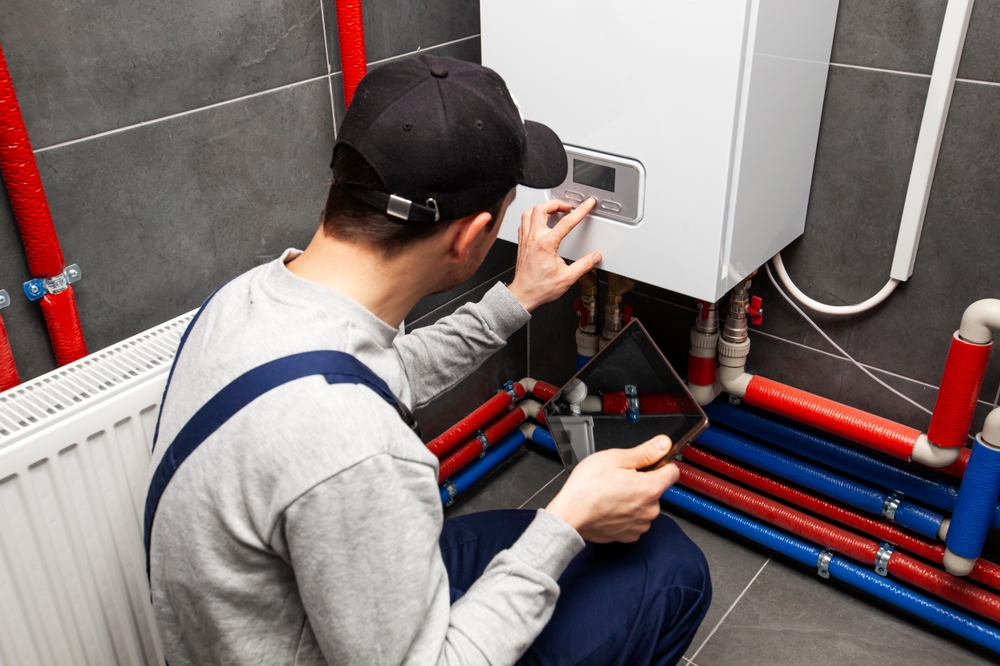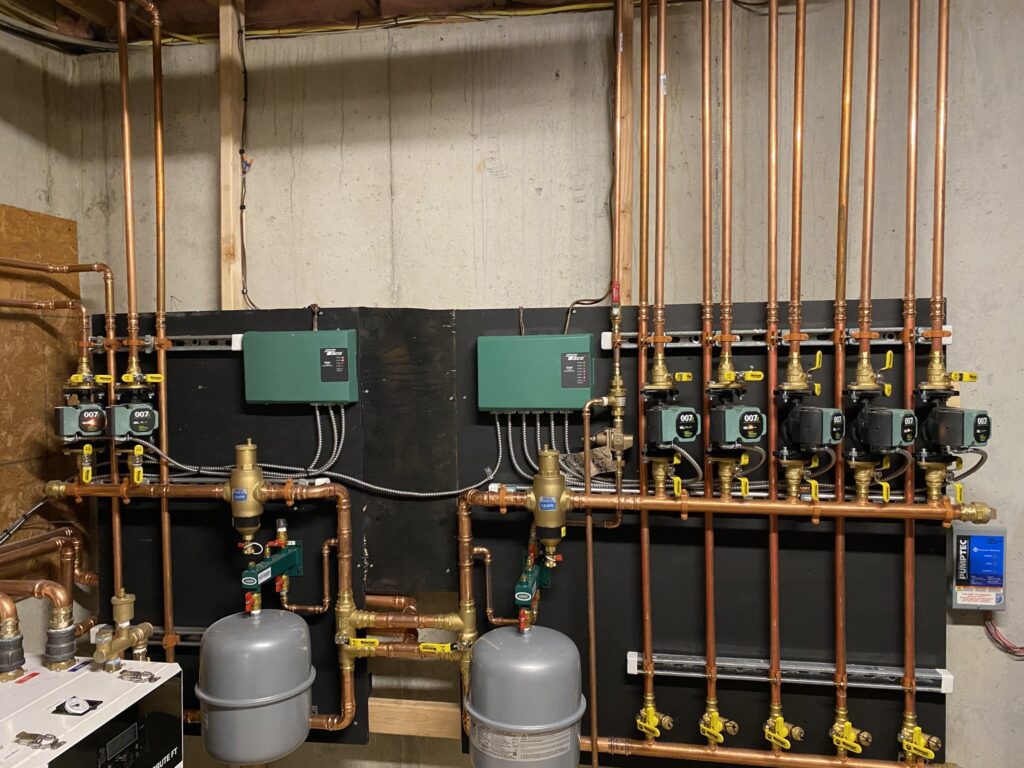
The boiler works hard to heat the air (and sometimes the water) in a home. It may be the unsung hero of winter for many people. Yet, it’s hardly given a second thought unless something happens, like a breakdown or a malfunction. If you’re a homeowner and your home contains a boiler, it can be helpful to know a little bit about them, including the different types of boilers, how they work, and how to keep the heat flowing and the winter outside where it belongs.
Table of Contents
Boiler Basics
The primary function of a boiler is to transfer heat to the air in a home or building. All is well when the boiler is working as it should. To understand how a boiler works, it’s best to take a figurative bird’s-eye-view of the process.
First, the thermostat will sense when the home temperature drops below the set threshold, telling the boiler to turn on. When the boiler turns on, it uses oil, gas, or electricity to generate heat. Which it uses depends on the specific boiler. That heat then transfers its energy to water. That water is then sent throughout the house (some boilers use steam instead of water) and proceeds to heat the air via a system of radiators. When the water cools (or the steam condenses), it is sent back to the boiler, and the process is repeated until the home reaches the desired temperature.
Types of Boilers
The 3 most common types of boilers found in homes are gas, oil, and electric boilers.
Gas boilers are the most common. They use gas, piped in through gas plumbing, to heat water. This is done in a combustion chamber where the water is heated in a series of copper pipes. Oil boilers are less common than gas boilers because they require delivery and storage of the oil. This is inefficient, especially since gas is already commonly used in many parts of the country. Like gas boilers, oil boilers also use a combustion chamber to create heat that is then transferred to the water.

Electric boilers are generally less efficient and more expensive to run than gas or oil boilers. They use heating elements to generate heat, which is used to warm the air. Since they’re more expensive and less efficient, they’re not as common as gas boilers.
Boiler Service Requirements
Like any other system out there, boilers need some care and attention to keep them running smoothly. Most service requirements can be performed once or twice a year by a trained professional. These include:
- Ensuring all electrical connections are adequate
- Inspecting the piping, joints, and the parts of the venting system
- Conducting a low water cutoff test
- Testing the water’s pH levels
- Cleaning and inspecting the heat exchanger
- Cleaning and inspecting the burner assembly and ignitor
- Making sure all parts are clean
- Checking for leaks and obstructions
A boiler that receives yearly maintenance should work well for many years to come. A boiler that receives maintenance every few months is a happy boiler indeed.
About Maitz Home Services
Since 1964, Maitz Home Services has been serving Allentown, PA, with pride. We offer a 100% satisfaction guarantee on every job. We also provide up-front pricing and excellent workmanship from our punctual and respectful technicians. Contact us today to schedule boiler repair service in Allentown.

